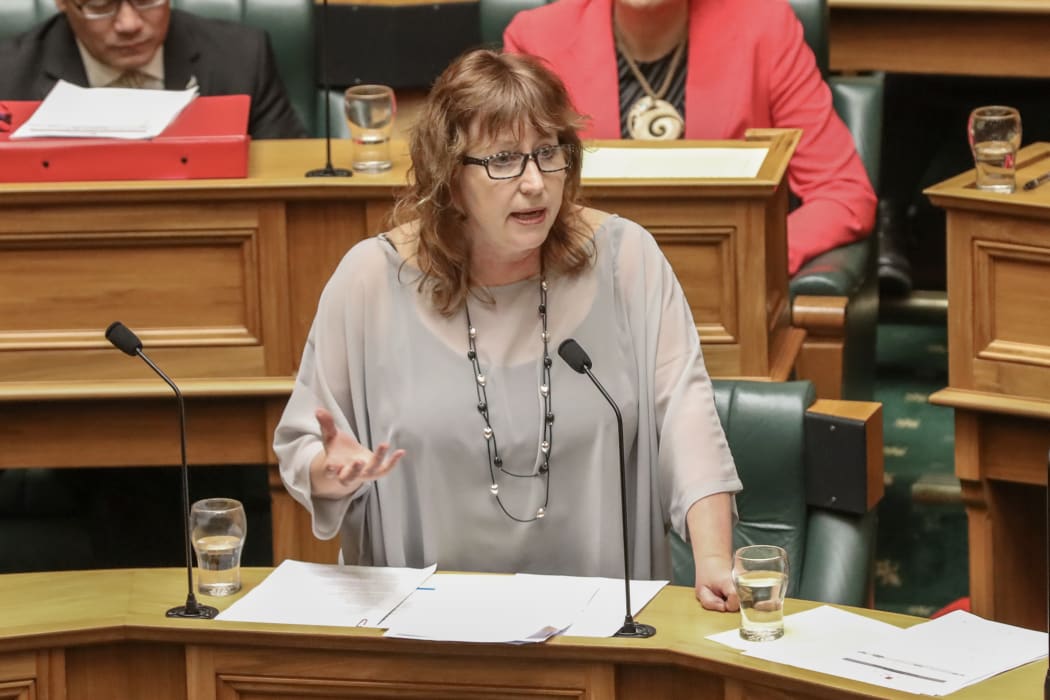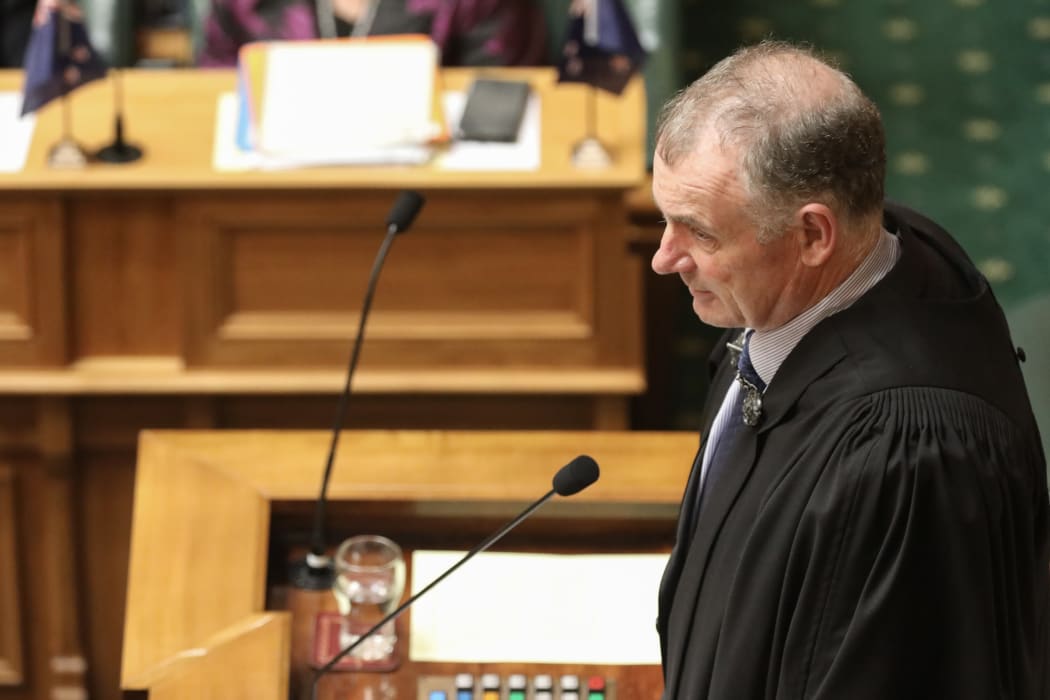Any government information is potentially discoverable under the Official Information Act.
It's not just for journalists and MPs either; anyone can ask for it. That covers a range of information like times, dates, correspondence, notes, documents, recordings. Everything.
Theoretically you could ask for information in someone’s head - but good luck with that.
Government ministers also need to be able to account for themselves to Parliament, so everything is carefully noted - and just as well, because under the Public Records Act everything has to be - and it all has to be lodged (eventually) with the chief archivist.
But there are numerous reasons why information can be withheld, including commercial sensitivity and the national interest and personal information is protected under the Privacy Act. So before information is released it generally gets vetted, and possibly redacted.

Labour MP Clare Curran in the House Photo: VNP / Phil Smith
There's been a lot of political focus recently on minister's communications, especially on emails and texts sent via personal rather than official channels. One particular incidence of this has caused Parliament's Speaker Trevor Mallard to suggest it is taking Parliament and the Government into new constitutional ground.
A quick recap for some context.
When it was realised that Labour MP and former Minister Clare Curran had held an undocumented, unrevealed meeting with the Government’s prospective new Chief Technology Officer (a second strike on such meetings), she resigned and the appointment process ended. At which point she was no longer a minister and her responsibilities fell to others.
But those who took up her responsibilities didn’t automatically get access to to all her communications, because alongside her official email Ms Curran had also used her own gmail account for official correspondence.
Using a personal account is not against the rules (apparently the former Prime Minister John Key also did this), and isn’t really the issue; but it has created issues. The problem is getting ready access to those emails.
Soon after Ms Curran's departure, the Government undertook that all of her 'unofficial-official' correspondence would be passed to the Chief Archivist (as all public records must eventually be), for accession into the archive. Which sounded fine and dandy, but it still didn't mean that ministers had ready access. Presumably, to read them now they need to request them from the archives.

The Speaker, Trevor Mallard on his feet Photo: VNP / Phil Smith
Which is where the Speaker came in. He referred to the whole issue as "an area of particular constitutional importance and a new area for consideration by this House."
He said he was not aware of similar situations where ministerial communications from a former Minister were not readily available to their successors.
"I think there's an important point around the collective responsibility and the continuity of the ministry, and it's an area which I haven't seen any discussion on previously.
"I have made it clear, including in a way which was probably beyond my powers, that I think there is a responsibility for Ministers to obtain, as quickly as possible, the correspondence of former Ministers in order to ascertain what communications, and especially what obligations, have been entered into on the part of the Government by former Ministers. That is quite separate to the Government's responsibilities under the Public Records Act or under the Official Information Act."
He also had some reasonably pointed comments about the role of the Chief Archivist in this.
"I have made it clear in the House that the Chief Archivist does not override the powers of this House, and Ministers are responsible to this House, and not to the Chief Archivist. ... last week, I indicated that fairly plainly to the Chief Archivist."
National MP Nick Smith asked the Speaker to demand certain emails not made available are produced by the next day.
"I cannot and will not give that guarantee," the Speaker said.
"We've had an undertaking from the Minister currently in charge of the area that release of the material is imminent. But the point that I will make to the member—and where I said we're tip-toeing in new constitutional grounds—is the right of Ministers to obtain the records of previous Ministers. That is something which is not absolutely clear.
The Speaker said his opinion is that it should be the case but as it might make a new constitutional convention he "was not in a position make such a requirement."


